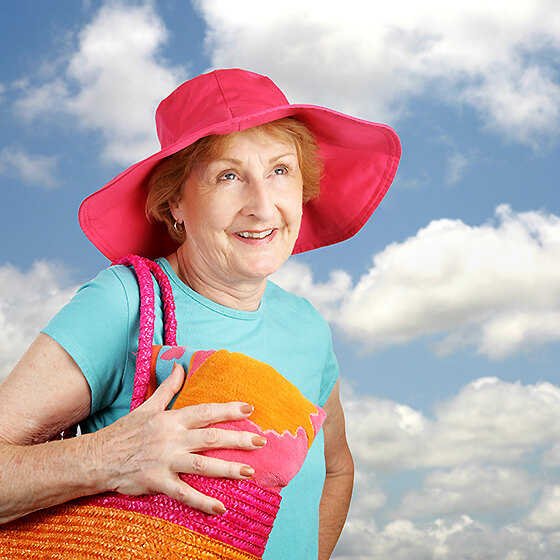Summer is the time of light and joy! The days are longer, the community centers are hosting more activities, the sound of children’s laughter fills the air and the weather is fair. Or it can be. Summer can also bring intense heat and humidity which can adversely affect seniors’ physical health. While summer is undoubtedly the time to seize the day with an adventure, it doesn’t hurt to remember some precautionary measures to beat the heat.
Heat-Related Health Issues
Heat-related illnesses gradually worsen with time and exposure. If you can be proactive, you can avoid these problems before they arise, and even if you find you are having symptoms of heat-related problems, there are steps you can take to minimize the condition before considering emergency services. The graduation of heat condition begins with dehydration, which is a loss of water in your body from excessive sweating or urination. You can look out for the warning signs of dehydration as you will feel weakness, muscle aches, cramping, dizziness, confusion or fainting. If you feel any of these symptoms then ensure you drink plenty of water and sports drinks with electrolytes because that will assist in regulating your heartbeat.
If dehydration worsens you will suffer from heat exhaustion, which is a serious health ailment where the body temperature rises to 37 C – 40 C caused by too much heat and dehydration. Heat exhaustion looks like heavy sweating or no sweating, pale and clammy skin, weakness, tiredness, muscle cramps, headaches, nausea and vomiting, irregular heart pulse, dizziness and fainting. To treat heat exhaustion, make sure to address the dehydration by drinking water and sports drinks, as well as immediately move to a cool shaded or air-conditioned place. If your symptoms do not improve, call 911.
The worst of the heat conditions is heat stroke, which is a dangerous rise in your body temperature and can be deadly. Heatstroke can happen over days of gradually heat exposure, so it is important to ensure you have a cool air-conditioned place to live during the summer heat. If you have a body temperature of 40 C or higher, red, hot and dry skin, fast or irregular heart pulse, nausea, vomiting, headache, dizziness, confusion, weakness, or fainting then you are at risk of heatstroke and you need to call 911 immediately.
Tips for Staying Cool
- Stay Hydrated: Drink plenty of cool water, juice and sports drinks. Be mindful of caffeine and alcohol which dehydrate you.
- Wear Sunscreen– Look for a sunscreen that has an SPF of 30 or higher and ensure you are reapplying every couple hours as sunscreen will wear out as you move and groove
- Dress Light– Make sure you choose to clothe accordingly. Ideally, wear light-colored and loose clothing with a wide-brimmed hat and sunglasses.
Stay Safe
When you are knee-deep in a pool or toasting at a BBQ, you may not want to consider the health and safety of your situation, but the excessive heat of the day can be dangerous. It is better to be safe than sorry. Those with chronic medical conditions are at risk of developing a heat-related illness, which can be exacerbated by age-related conditions. Older seniors are more vulnerable to temperature-related health conditions therefore as temperatures rise above comfortable levels, you need to be proactive and take necessary precautions to avoid heat-related ailments.

